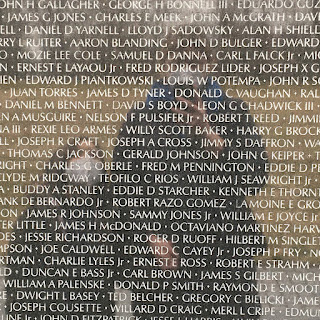An unsuitable profession for a woman? The work experience of women members of the Institute of Chartered Accountants in England and Wales (ICAEW)
In this blog, based on a paper she gave at the WESWWHN Annual Conference in October 2022 on Women and Money, Dr Jane Berney describes the barriers set before the first women accountants.
In October 2022 I was fortunate to be invited to present a paper
to West of England & South Wales Women’s History Network Annual Conference
on the theme of Women and Money: A Historical Perspective. My take on
the theme was a review of the careers of the first female members of the
Institute of Chartered Accountants in England and Wales (ICAEW) as a means to
explore the barriers they faced in their professional lives, how they navigated
these barriers, and how their experiences reflect societal views on women and
money that persist today.
The ICAEW was founded in 1880 by royal charter. As a professional body its aim was, like all professional bodies, to promote its members as the experts in their field and well positioned to advise business and government on financial matters. As Anne Witz explained in Professions and Patriarchy, the essential motivation for professional bodies is occupational closure, whereby dominant groups deploy strategies of exclusion and demarcation. ICAEW achieves exclusion by setting stringent entry requirements, followed by long periods of training and numerous exams and of course this also achieves demarcation. ICAEW members could/can differentiate themselves from other accountants or finance professionals by dint of their qualification.
In the case of many professions both of these tactics were initially used to prevent women entering the professions. ICAEW was no exception. In 1891 the first female applicant, Mary Harris Smith, was rejected on the grounds that ICAEW’s charter referred to he, him and himself and so could not allow female members. This exclusionary stance was maintained until the passing of the Sex Disqualification (Removal) Act 1919 forced the hand of professional bodies. Demarcation was also a useful ploy as shown by the following quote from The Accountant , the official journal of ICAEW:
We have no desire to say anything
that might tend to encourage women to embark upon accountancy, for although
many women might make excellent bookkeepers there is much in accountancy proper
that is, we think, altogether unsuitable for them.
By drawing a distinction between ‘accountancy proper’ and ‘bookkeeping’ the implication is that the former is a higher calling and that only men have the requisite skills and education to undertake it. It wasn’t that women couldn’t do ‘numbers’, it was just they could only do certain numbers and it was their role as a professional that was the problem.
Much of the historiography on female professionals, including accountants, has focussed on the hurdles placed before women who wished to join the professions. In part this is because the sources exist – as in so many instances women only enter the historical when they represent a problem. But I would argue the next part of the story is just as important and so I have based my research on the limited knowledge we have of the careers of some of the first female members of ICAEW. This is based on ICAEW’s records, articles written, and interviews given by female members from the 1920s to the present day. I have also looked at the gender pay gap reports of accountancy firms as this gives some additional and contemporary context to the debate.
My research to date has shown that exclusion and demarcation were not just
used to prevent women entering the profession in the first place but continue to
be used to thwart female progression, albeit in different ways. In some
respects it is very depressing and the challenge for me is not to turn my
findings into a rant but to use it to explore how this reflects societal view not
just on female professionals working in finance but the broader picture of
women working for money. I am basing this on the premise that the right to enter
the professions was only the start, as after that female professionals were subject to marriage
bars, had to fight for equal pay, and were subject to the same taxation and
pension inequalities as any other female employee. In some respects this boils
down to how women’s paid work is valued or not by society but it also reflects societal
unease surrounding women and money. I hope my research will go some way to
understanding why such unease exists and why eradicating it is necessary before
women’s paid work is truly valued.
Jane Berney is a historian specialising in women’s agency. Her PhD and her published articles focused on the regulation of prostitution in colonial Hong Kong. More recently and through her experiences as a chartered accountant she has developed an interest in the experience of women in the male dominated accountancy profession and financial sector. In 2019/20 she researched and wrote for ICAEW a brief history of its first female members. As part of this she studied the papers of Ethel Watts, the second female member of ICAEW and a champion of female equality. This paper is the result of that research.



Comments
Post a Comment